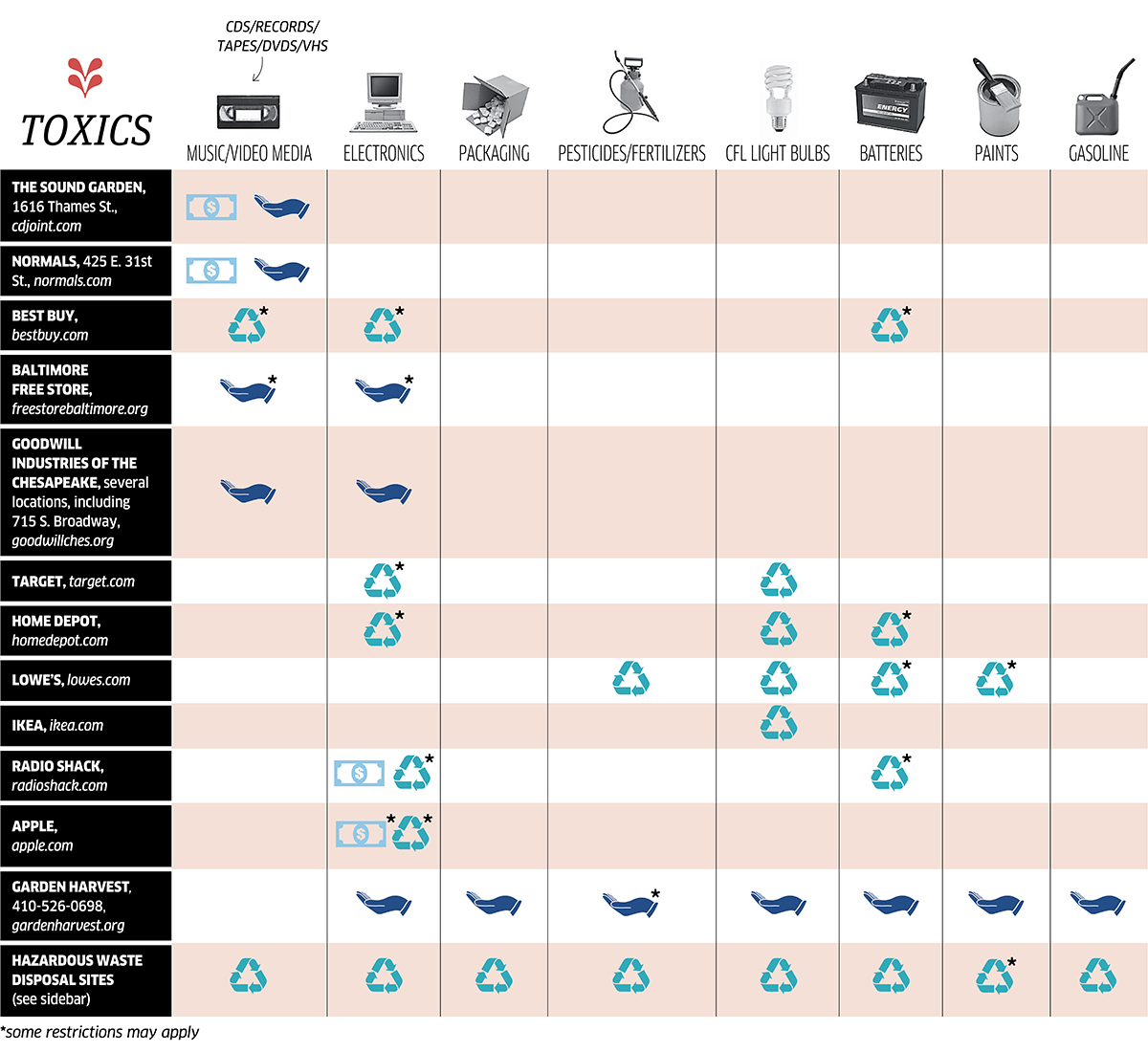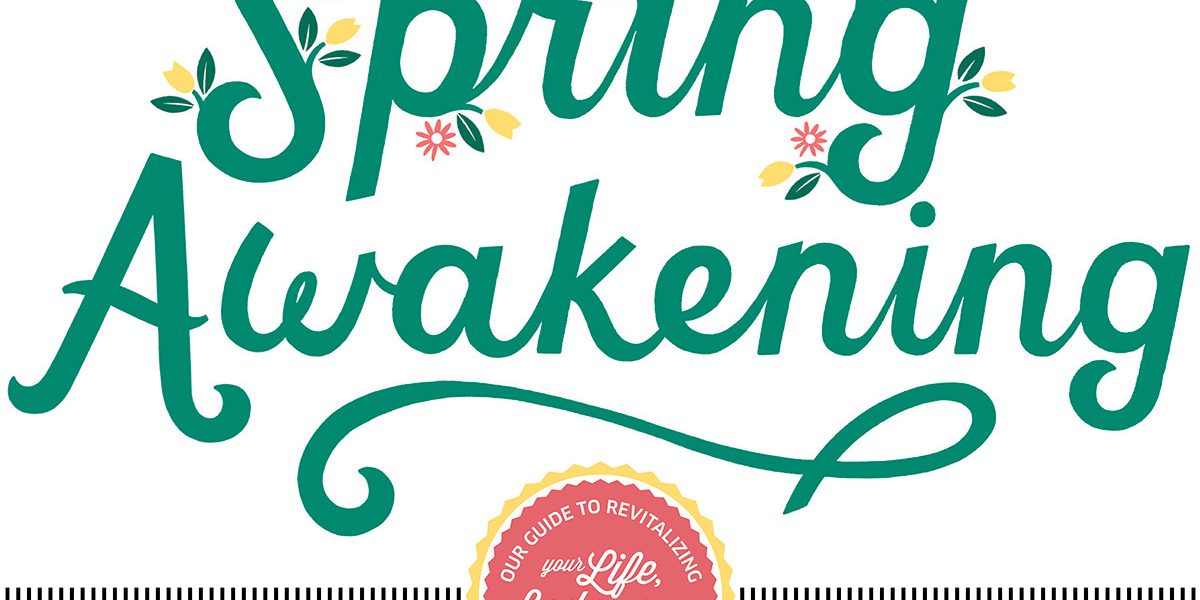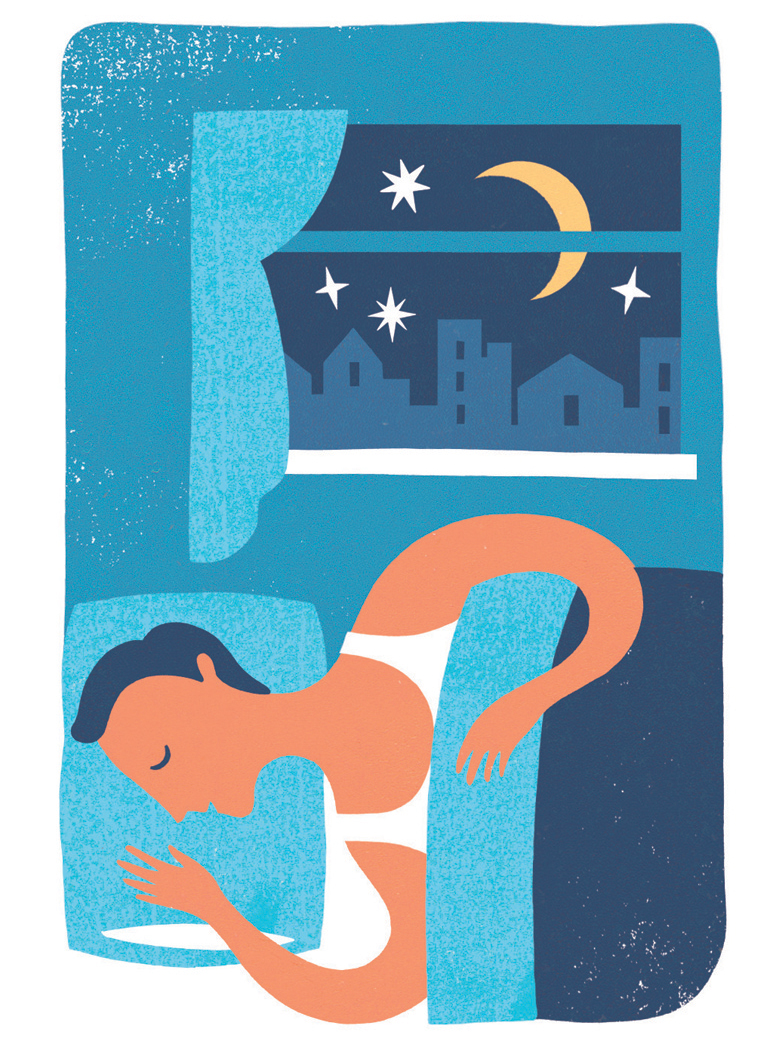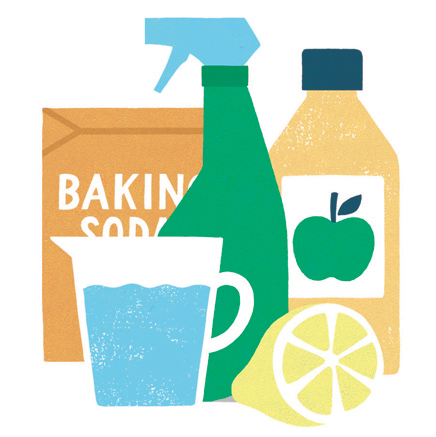Health & Wellness
Spring Awakening
Our guide to revitalizing your life, body and home
The demands of modern life are plentiful and relentless. It’s no wonder we all feel overwhelmed from time to time. This manifests itself in varied ways, from disorganized closets to toxic friendships we can’t quite jettison. And all that confusion in your life adds stress and saps energy, diverting you from the things you really value.
We’ve outlined common priorities (love, friendship, career, health, etc.) and sought expert advice on how to cultivate these essentials, by tuning out the noise and focusing on what matters.
For those who feel like they have a handle on the metaphorical static, we also offer a guide to removing the literal clutter in your life—the clothes, shoes, old appliances, rusting paint cans, and batteries that clog your closets and gunk up your garage.
So, since spring is a time of renewal, here’s our primer on improving your life, body, and home in the hope that maybe one—or several—of these suggestions will help you spring forward to become your best self.
Life | Body | Home
Love
So much time and energy is spent in service of the
“L-word,” either looking for it or trying to keep it. For those looking
for love, professional certified coach and licensed certified clinical
social worker Terry Schaefer has this advice: “You can’t go swimming for
dolphins in a swimming pool.” In other words, if you want to find love,
get out there. “It’s never too late as long as you’re open-minded about
it and put yourself out there,” he says. To increase the odds of
meeting someone with whom you’ll click, Schaefer recommends signing up
for activities and hobbies you enjoy. If you’re still having trouble, he
says it could be a case of unrealistic expectations. “Go back to some
of these preconceived notions that you have inherited from somewhere in
your past so you can start to seek out the right person,” he advises.
If
you’ve already found “the one” but want to keep the bonds strong,
Schaefer is a big proponent of a regular, mandatory “date night.” He
also acknowledges that communication is key and that admitting
uncertainty is healthy. “Admit when you don’t know, were wrong, or don’t
have all the answers. In my 50s, I realized, I don’t have to be the
smartest person in the room, I have to be the most inquisitive. I think
that is probably the wisest thing I can say to you.”
Friendship
Friendships buoy us in tough times and make the good times even better. But what happens when one turns toxic? “People come into our lives for a reason, a season, or a lifetime,” says life coach Terry Schaefer, “but it’s our job to sort through what’s right for us and what’s wrong, keep the treasures and toss out the trash.”
Etiquette and image expert Cash Hester agrees. “When you feel like you’re being misused—not just used, but misused—then that’s a red flag,” she says. But in this day and age of social media, how can you end a relationship without igniting a Facebook war of words? “I have this mantra: Drift away, don’t stomp away,” says Hester. “Gradually disengage. Don’t communicate, or at least slow down the communication. Stop initiating contact. Before long, they will stop reaching out to you,” she adds. This can be as simple as hiding someone’s Facebook feed so you won’t be tempted to respond or as concrete as temporarily withdrawing from social interaction with that person. If a confrontation becomes unavoidable, Schaefer says to remain resolute but to also respect the friendship’s history. “Say, ‘Thank you for being a friend. I’m going to miss you being in my life.'”

Work
According to life coach Terry Schaefer, work doesn’t have to be drudgery. In fact, he posits, we are all best served when we are “doing things that make sense to who we are and how we show up in the world.” What this means is that the job you are really good at and the job you really want are probably one and the same. If you truly follow your instincts, you will “gravitate to the path of least resistance,” Schaefer explains. “You’ll do things that you know you can do quickly, easily, and with focus.” The trick, of course, is finding out what our “thing” is. Often times, that requires letting go of received wisdom. “I believe that our intuitive side is talking to us. Listen to that gut feeling. We get a lot feedback from friends, family, and school. How is that conditioning preventing us from doing what we’re best-suited to do?” Schaefer asks. Once we have a professional goal in mind, he recommends taking small, calculated steps to test that hypothesis. For instance, instead of enrolling in a graduate program, take one class to see if it’s a good fit. Then, if it is, go for it. Perhaps most importantly, don’t give up. “I don’t think it’s ever too late to find out what you’re passionate about,” he says.
Diet
If you are confused about what constitutes a healthy diet, you’re not alone. We are endlessly subjected to a string of gurus telling us that a low-carb, or raw-food, or gluten-free diet is the key to everlasting health. But, according to University of Maryland Medical Center registered dietician and nutrition therapist Mary Beth Sodus, all we really need to know about healthy eating we learned in kindergarten. “Eat for variety, balance, and moderation,” she says. The simplest way to do this is by eating clean, fresh, seasonal foods whenever possible. This translates into fruits and vegetables, lean meats, whole grains, nuts and legumes, and some dairy thrown in for good measure. She further recommends buying as much of it as you can from area farmers’ markets and then—and this is key—enjoying it. “If anything, separate eating from weight loss,” she advises. “People want to follow rigid diets that will produce magical weight loss instead of eating a positive diet that is about slowing down and enjoying what you eat.”
If, however, you are looking to lose weight, she recommends finding “fun ways to cut calories,” such as swapping jam for butter on toast, using hummus instead of mayo on sandwiches, and using agave syrup as a sweetener instead of sugar. But easy does it, she cautions: “Make small changes. A lot of people want to change everything immediately and get very hard on themselves.”
Calorie-Cutting Swap
Small changes can lead to long-term success in weight loss and management.
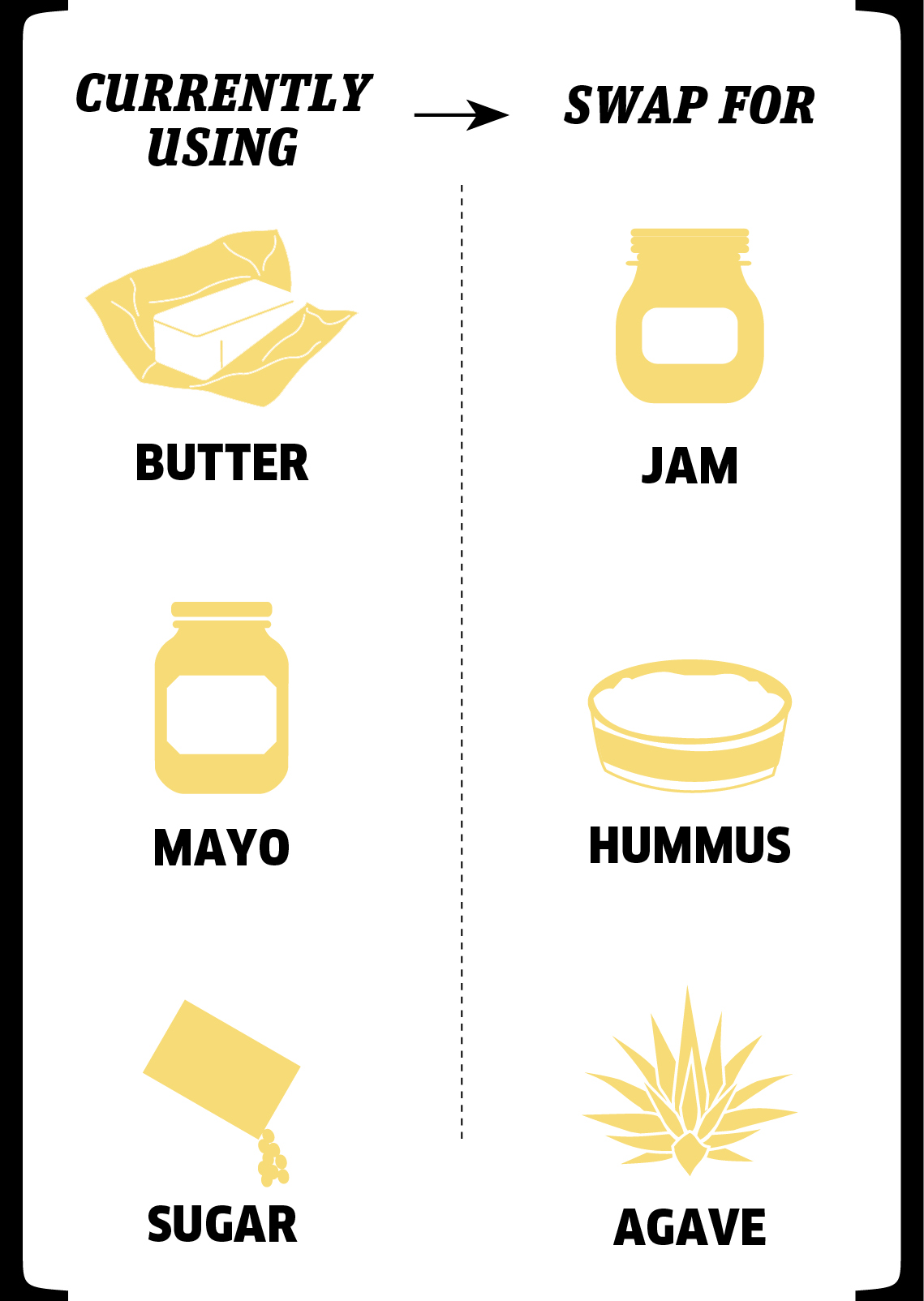
Skin
It’s the body’s largest organ and our first line of defense from the elements, yet many of us are cavalier about caring for our skin. If Dr. Mary Sheu, medical director of the Johns Hopkins Dermatology and Cosmetic Center, could make one practice mandatory, it would be wearing sunscreen, calling it “probably the most important thing one can do to have healthy skin, prevent skin cancer, and help aging skin.” The sunscreen should be a broad spectrum UVA/UVB formula with an SPF of 30 or higher. For those with sensitive skin or who are concerned about hormone disruption linked to synthetic sunscreens, Dr. Sheu recommends using zinc oxide and titanium dioxide, two finely crushed minerals that are not chemically derived. Getting enough sleep, drinking enough water, eating a healthy diet, and not smoking also help. Other than that, a lot of it is common sense: “In general, I recommend moisturizing the skin,” she says, “but I also don’t think it’s necessary to put many different products on the skin. Avoid excessive fragrances. Cleanse in the morning with a gentle cleanser, put on sunscreen with moisturizers, cleanse again at night, and then add a moisturizer with retinal. It’s nice to keep it simple.”
Get Pampered
April 21–27 is National Spa Week and dozens of area spas and wellness centers are offering deeply discounted treatments during the week. Check spaweek.com for
more information.
Exercise
Gerald J. Jerome, associate professor of exercise science at Towson University, has a simple message when it comes to exercise: Do it. “Some is better than none, and more is better than some,” he declares. Experts recommend 150 minutes of moderate to vigorous exercise per week, which breaks down to about 30 minutes a day, five times a week. The important thing is to make sure there are sustained periods when your heart rate and breathing increase. “Sign up for an exercise class, get a workout partner, sign up for a race,” Jerome suggests, adding that making exercise an integral part of your day is the best way to ensure long-term health. To do this, he recommends people honestly evaluate their own ambitions. “I think it starts with making sure you know the reason why,” he says. “People who have a good reason for doing it find it easier to prioritize finding the time.” If your enthusiasm begins to flag after a strong start, Jerome says it’s usually due to a deviation from one or more of what he calls “The Four R’s”: [knowing your] reason, [having a] routine, [having] reasonable expectations, and renewing your commitment. “Spring is great,” he acknowledges. “Everybody wants to be outside and wants to be exercising more, but you should follow up on that. When that boredom creeps in, it’s time to renew your commitment.”

Quit Smoking
It’s bad for you, it’s expensive, and it’s becoming harder and harder to practice in public anyway, so isn’t it time you quit? Lucky for you, there’s plenty of help available. The federal government—through a branch of the National Institutes of Health—runs smokefree.gov, a compilation of resources, support, and advice for those who want to quit. The state of Maryland offers a smoking cessation program through 1-800-QUIT-NOW and mdquit.org. Baltimore City has an Office of Tobacco Use Prevention and Cessation, which can be accessed at baltimorehealth.org/cessation.html. These programs are often free, especially if you have insurance.
Free Classes
The Spa at the Four Seasons Hotel Baltimore offers a free wellness class the fourth Tuesday of each month. This month’s event, held April 29 from 6–7:30 p.m., will focus on chakra balancing. For reservations, call 410-223-1440.
Sleep
Sleep is a necessity, not a luxury, says Dr. Jessica A. Mong, an associate professor in the Department of Pharmacology at University of Maryland School of Medicine who has done sleep research. “We are a sleep-deprived society,” she warns. “The recommended amount of sleep for an adult is eight to 10 hours. I would say, on average, we get five to six.” The risks associated with insufficient sleep go beyond mild crankiness and dark circles under the eyes. “Our physiological needs are met by sleep. Studies are finding that by not getting eight to 10 hours of sleep, we increase our risk for type 2 diabetes and weight gain, and poor sleep habits may exacerbate some symptoms of psychological diseases,” she says. Plus, for women in particular, sleep loss is associated with a greater risk of heart disease. So, in order to maximize our sleep, Dr. Mong recommends limiting the use of electronics two hours prior to bedtime. “What affects the circadian system is light. It’s enough to trick the brain into thinking that it’s not bedtime,” she says. It’s also important to know whether you’re a lark (morning person) or an owl (night lover). Once you know this, plan accordingly: “Set a reasonable bedtime, turn off devices two hours prior, limit caffeine, make your setting comfortable and dark, and keep it quiet, especially if you’re a light sleeper,” Mong advises.
How to Throw a Great Yard Sale
The yard sale is a great warm-weather weekend tradition. To maximize your earnings and make sure you move the most inventory, follow these tricks of the trade.
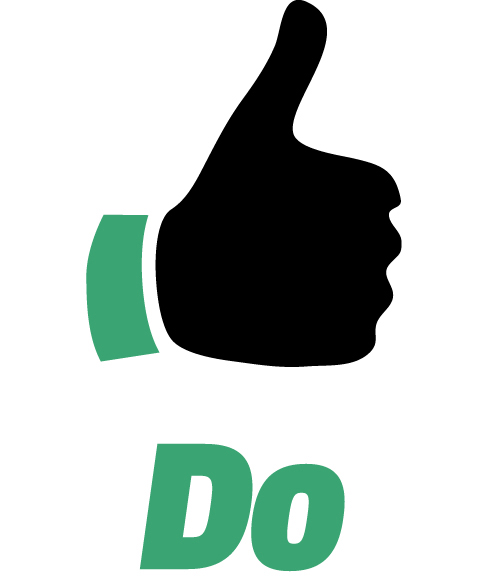
- Advertize with signs and online. Notices can be posted for free at online marketplaces such as Craigslist and eBay Classifieds.
- Price items accordingly. Ten to 30 percent of the original price is standard.
- Organize. Group like items together, affix price tags to every item, and put the best merchandise up front to draw interest.
- Have plenty of change (both paper money and coins)
on hand. - Have a working electrical outlet
available to prove items are functional. - Be willing to bargain, especially toward the end of the day.
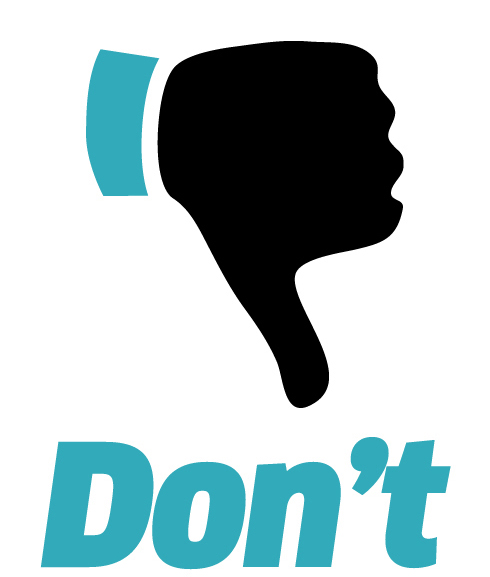
- Pick a holiday weekend. Too many people will be traveling and unable to attend.
- Hold a yard sale
more than twice per season. Your neighbors will thank you. - Forget to put
all info on your signs including date(s), time(s), and location. - Let your pets roam. They may be friendly, but customers
won’t know that or may be allergic. - Leave your money unattended. Wear
a fanny pack (really!) to keep it safe. - Accept checks or
credit cards. It’s
generally more trouble than it’s worth. - Forget to remove your signs afterwards.
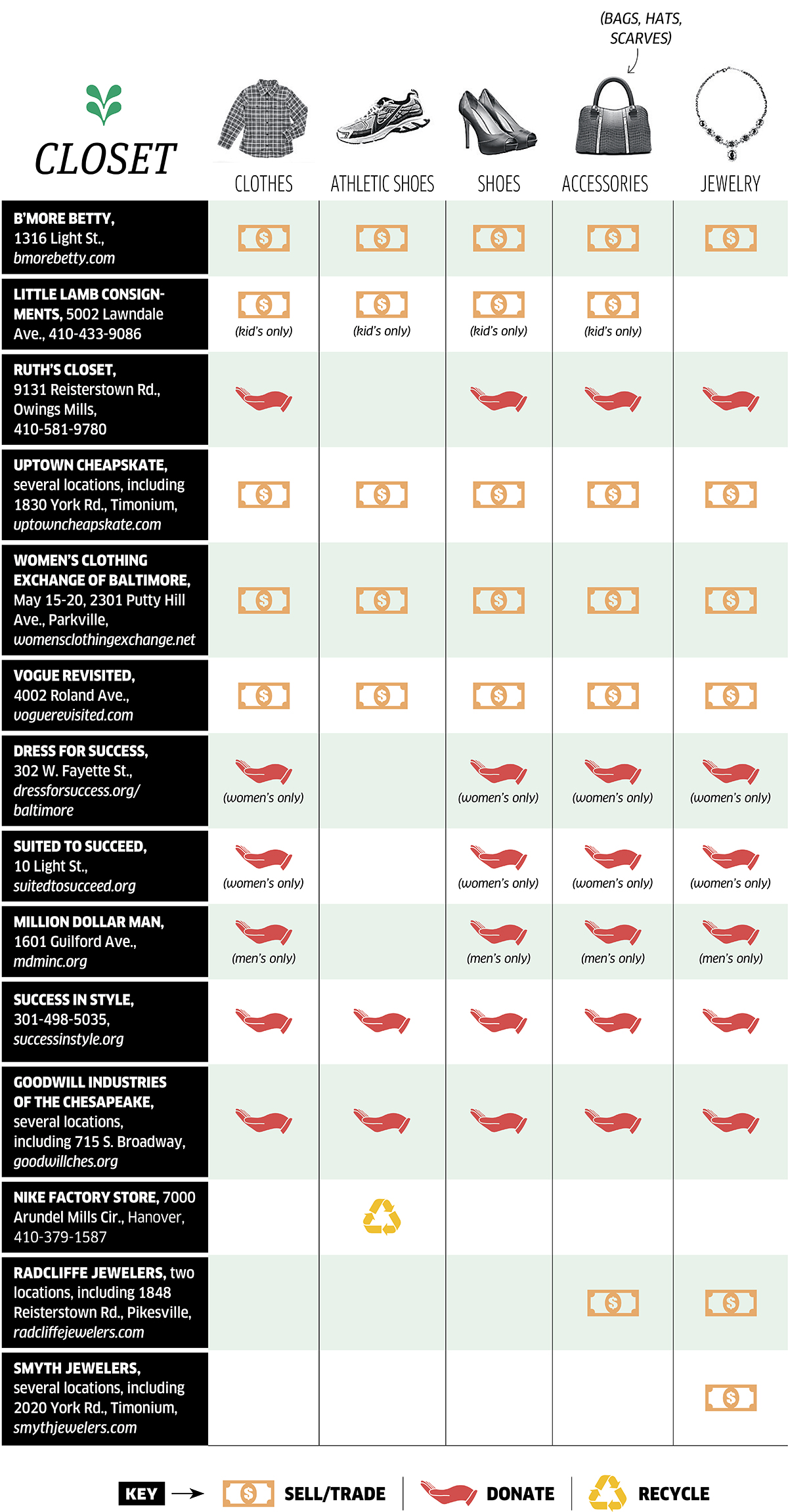
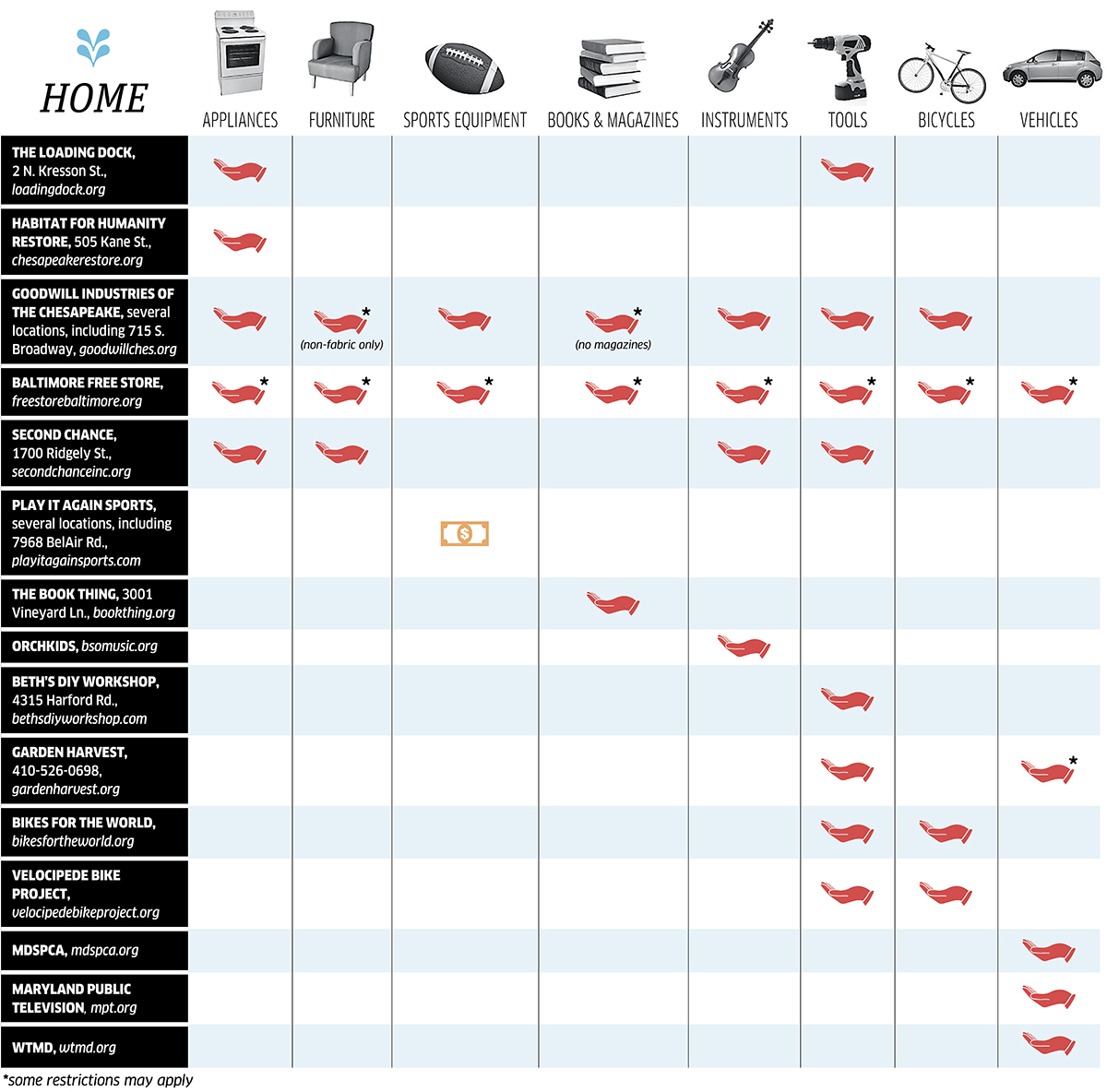
Clean your Cleaners
We think we’re doing a good thing when we break out the scrubs, sprays, and powders for a thorough scrubbing, but it’s not quite so. Most household cleaners contain chemicals called volatile organic compounds (VOCs), which an increasing number of studies have linked to adverse health affects in humans and animals. “People don’t realize there may be any problem because these are all legal products that are allowed to be sold in stores,” says Maryland-based consulting environmental health engineer Albert Donnay. Also a toxicologist, Donnay says that most people have too many cleaners and that they use far too much of them. “I’m not suggesting people live in dirty homes, but regular soap and water can clean a lot of surfaces just fine,” he says. When called in for a home consultation, the first thing Donnay does is look under the sink, pull all the cleaners out, and put them in a garbage bag for storage. “If they really miss something, they can go back and get it,” he says. Then he recommends transitioning to cleaners without fragrances or dyes, or, better yet, a homemade cleaner made from common ingredients, see recipe. For a list of chemicals contained in household items, visit the Household Products Database maintained by the Department of Health and Human Services at hpd.nlm.nih.gov.
Recipe
Homemade All-Purpose Cleaner
- ½ gallon water
- ½ cup white or
- apple-cider vinegar
- ¼ cup baking soda
- ½ lemon, juiced
Mix ingredients in container. Store in a cool, dark place.
Household Hazardous Waste Days
Anne Arundel County
April 12, 8 a.m.–2 p.m.
Millersville Landfill & Resource Recovery Facility
389 Burns Crossing Rd., Severn
aacounty.org/dpw/wastemanagement/householdwaste.cfm
Baltimore City
April 4-5, 9 a.m.–5 p.m.,
Northwest Citizen Convenience Center
2840 Sisson St.
publicworks.baltimorecity.gov/recycling/householdhazardouswaste.aspx
Baltimore County
April 6, 9 a.m.–1 p.m.
Central Acceptance Facility
Warren Rd., Cockeysville
baltimorecountymd.gov/agencies/environment/groundwatermgt/hazwaste.html
Carroll County
April 19, 8 a.m.–12 p.m.
Carroll County Vehicle Maintenance Facility
1250 Old Meadow Branch Rd., Westminster
ccgovernment.carr.org/ccg/solidwaste
*event also includes paper shredding
Harford County
May 10, 10 a.m.–2 p.m.
Harford Waste Disposal Center
3241 Scarboro Rd., Street
harfordcountymd.gov/dpw/envaffairs
Clear Your Clutter Day
April 26, 10 a.m.–2 p.m.,
Harford Community College
401 Thomas Run Rd., Bel Air
clearyourclutterday.org
*$5/carload, some restrictions apply
Howard County
Every Saturday, April–Nov., 8 a.m.–4 p.m.
Alpha Ridge Landfill
2350 Marriottsville Rd., Marriottsville
howardcountymd.gov/hhw.htm
Don’t Flush Them:
You can dispose of old medications at hazardous waste disposal sites, see above, and at disposemymeds.org
